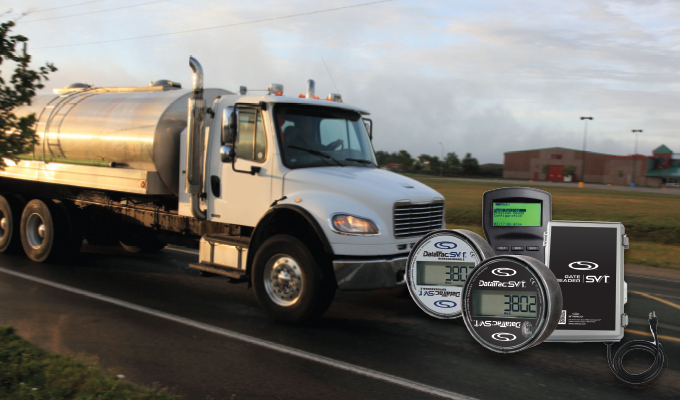By Drew Coen
When it comes to fleet maintenance, there are a lot of moving parts—literally. It’s not just about making sure you get to and from destinations and deliver the right products to the right places, you have to take care of your most important assets: people and equipment. Ultimately, data is about helping us make better decisions, large and small. From managing maintenance intervals to avoiding roadside safety issues, data puts all the right information at our fingertips.
STEMCO recently released the new GateReader SVT product, which is a wireless data gathering tool that works with sensors on the vehicle’s wheel end to assemble data in a web portal for fleet managers. But beyond STEMCO, the data revolution is gaining steam. With a rise in automatic data gathering tools, we can strive to be more efficient and safer than ever before. So let’s look at some goals that data helps us accomplish and why we should be reaching for them.
GATHER ALL DATA
Perhaps the biggest hurdles in data implementation are compatibility and accessibility. What good is data if you’re always running around trying to track it down? Even with automatic data sensors, it hasn’t always been a smooth process.
In the beginning, many sensor suppliers used first generation proprietary wireless interfaces for the sensors, making it difficult to have multiple sensors reporting into a single telematics system in a cost-effective way. To reduce the cost and system complexity while increasing compatibility, many new sensor designs adopt industry-standard wireless interfaces like Bluetooth 5 for wider compatibility and a more cost-effective method of integrating many sensors on one vehicle. The direction they’re going is to use industry standards so that fleet managers can find their data in online dashboards and apps all in one place.
REGULATIONS
It’s no secret that automatic data gathering helps with scheduling maintenance for vehicles, but it also can keep you out of trouble when it comes to regulations. Whether it be OSHA or your specific industry, staying up to date on maintenance goes beyond safety and equipment investment. Those two things should be reason enough to maintain your fleet, but no one wants to deal with fines or other legal issues.
CUT LABOR COSTS
Where would we be without vehicle mileage data sensors? Well, we actually know that answer. We’d have one person—or several people—walking around the yard doing inventory on the mileage and overall condition of each truck and trailer. Then they would have to gather all that information and make sure it gets to the right people promptly before the information becomes outdated. That’s a lot of effort compared to sensors that track data in real time so that it’s never outdated.
And of course, the goal of lowering labor costs is about putting people in the most effective and value-added positions. Data gathering and analysis helps fleet managers put people where they’re really needed. This way, the fleet manager can invest in more technical staff, customer service, and other positions where people make the most impact.
TRUCK ROUTES
We “react” to the data when we make a decision, but in many ways, fleet managers can be a lot more proactive with the support of data. One practical way to do that is to adjust trucks to different routes to better manage mileage. When you have accurate mileage data, you can engineer your system to make sure your equipment is used appropriately.
On a more general level, proactive maintenance reduces downtime and—more importantly—reduces roadside breakdowns that muddle your whole operation. You certainly can’t fully eliminate surprises in this industry, but with the right data you can go a long way toward minimizing them.
KEEPING PEOPLE SAFE
In the end, we should be committed to safety above all else, and not just for fleet managers and operators. When trucks have high-quality components that are cared for properly, the roads are a safer place. That includes the people out on the highway who don’t know anything about the work truck or commercial trucking industry. They’re implicitly trusting that we’re putting safe vehicles out on the road.
Even responsible fleet managers and business owners can face catastrophic situations like wheel-offs or tire blowouts if they’re not equipped with the right tools. In this day and age, data is one of the most valuable tools in our industry. The ripple effect is clear. Gathering data—now with smart tools like automatic sensors—can reduce costs and make us more efficient, but above all else it makes our industry and the roadways safer.
ABOUT THE AUTHOR
Drew Coen is the category director at STEMCO. Find out more, visit www.stemco.com.




